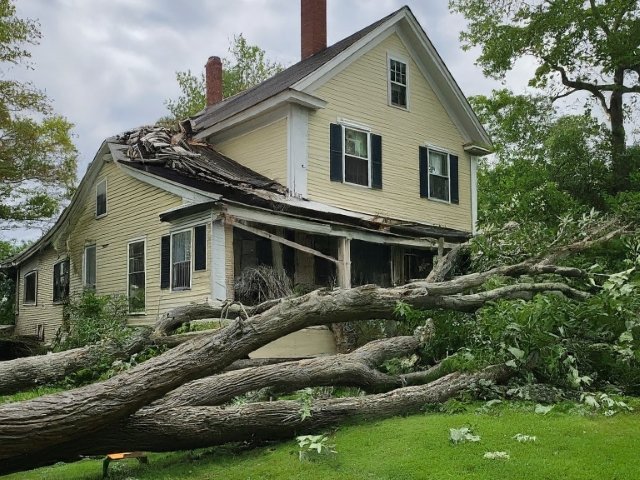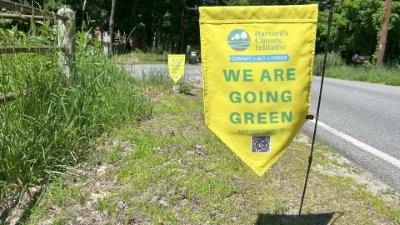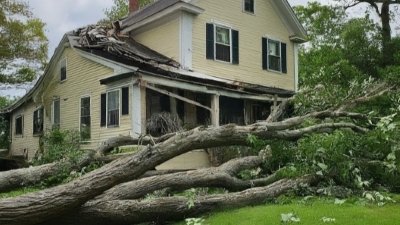STAGING!
Preparedness
Climate change will likely create emergencies that we need to be prepared for.
Harvard Public Safety calls households when there is emergency information to convey but you need to sign up for this service – Blackboard Connect – on the town website at https://townofharvard.portal.finalsiteconnect.com/Entry. Signing up will also provide information on whether the emergency shelter is open at the Bromfield School.
Harvard Police and Fire have published a Preparedness Guide for residents with essential information on what to do during an emergency and relevant phone numbers. Residents can get a copy of this guide by stopping in at the police station. We’ve included a number of their significant recommendations below.
Emergency Kits for Every Household
Every Harvard household should be equipped with an emergency kit to ensure residents can sustain themselves during and after a climate-related event. These kits should include the following:
- Bottled water: Ensure an adequate supply for drinking and sanitation for at least seven days.
- Non-perishable food: Stock up on canned goods, energy bars, and other non-perishable items to feed your family for at least seven days and make sure you have a non-electric can opener.
- Medicines: Keep at least a seven-day supply of essential medications.
- Flashlights and batteries: Check that you have all sizes and that they are not dated.
- Radio: Consider owning a battery-operated radio to stay informed about emergency updates.
- Phone chargers: When a storm is predicted, ensure your devices are fully charged.
- First aid kit: Ensure it is fully stocked to attend to minor injuries.
- Copies of essential documents: Have documents readily accessible, such as identification cards and health, home, and car insurance documents.
Pet Safety Planning
Pets are integral members of many households, and their safety must be considered in climate change preparedness. Harvard residents should create a seven-day pet emergency kit containing sufficient food, water, and necessary medications. Additionally, families should have a plan for evacuating with their pets and identify pet-friendly shelters in the area.
Power Outages
One of the primary concerns during extreme weather events is the disruption of power supply. To address this, residents in Harvard should consider investing in whole-house batteries or generators capable of providing energy for up to a week. These batteries or generators can keep essential appliances running, ensuring residents have heating, refrigeration, and other necessities during prolonged power outages.
Community Awareness
Folks should deploy a neighborhood approach when it comes to awareness. It’s best to have a contact list with your neighbors’ phone numbers and email addresses. Someone in the neighborhood should take the lead on gathering and maintaining the list and being responsible for setting up a calling system to check in with everyone, especially those who are housebound or have special needs. It can make all the difference.
Preventive Measures
Tree Assessments and Mitigation
Harvard’s landscape is adorned with trees, but these trees can become hazards during severe storms. Conducting an annual tree assessment is crucial to identify trees prone to falling. Trees should be trimmed if they are too close to the home or power lies.
Secure Loose Outside Items
Depending on the type of storm, secure all loose items outside, close all windows and doors, and move valuable items to a secure, accessible location.











